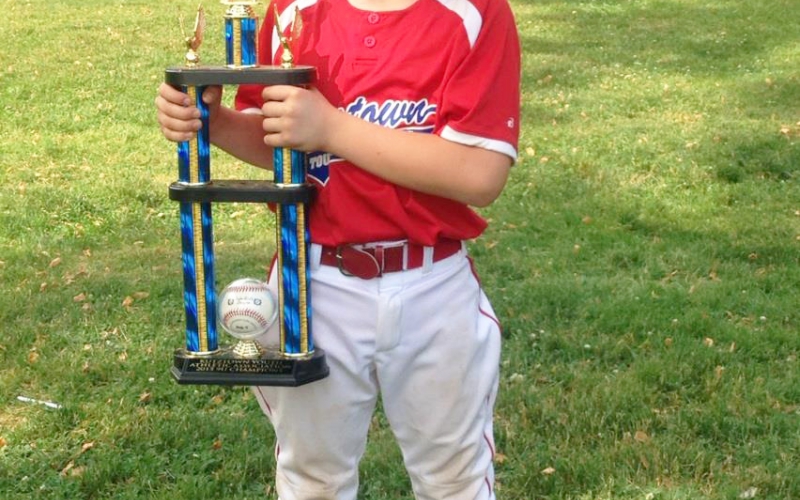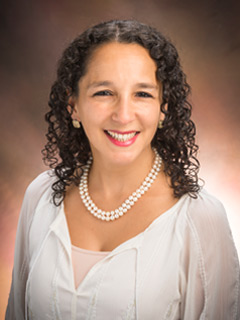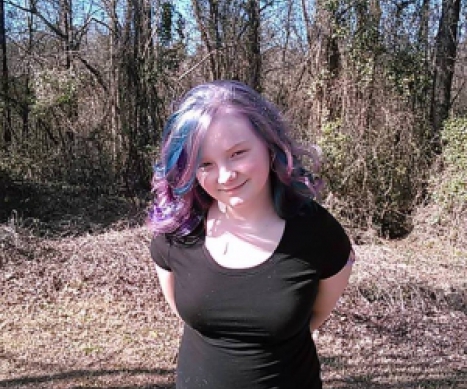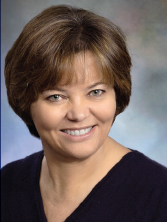
Zach (pictured above, at age 10) battled a hard-to-treat type of lymphoma.
by Trish Adkins
Childhood lymphoma arises from the immune system cells and occurs when those cells grow in an uncontrolled and uncoordinated way. While it shares some similarities with leukemia, lymphoma often settles in the lymph nodes of the body, instead of in the bloodstream.
Each type of lymphoma is named by its cell of origin and this dictates treatment protocol. The good news: the most common types of lymphoma (Hodgkin, Non-Hodgkin, Burkitt) have relatively high cure rates as compared to other types of childhood cancer.
The bad news: cure rates are not 100-percent and even those children who are cured of primary lymphoma can face a lifetime of side effects including cardiac dysfunction and even secondary cancers.
But, there is hope on the horizon. Alex’s Lemonade Stand Foundation (ALSF) funded researchers so they could continue to search for safer treatments and cures for children battling lymphoma. Meet some of these childhood cancer heroes and the researchers making a difference every day:
Miracle Cure: Zach
When Zach was 5 years old, he was diagnosed with anaplastic large cell lymphoma (ALCL), an extremely rare type of non-Hodgkin lymphoma. While still in treatment, Zach’s lymphoma relapsed. As Zach became sicker and his prognosis worsened, his parents felt they were out of options. Traditional chemotherapy was not working and, in fact, was making Zach sicker. Zach was running out of time.
Zach’s lymphoma tested positive for ALK, an abnormal gene that fuels certain types of cancer. ALSF-funded research made a clinical trial for a new drug possible, bringing hope to his family. This drug, known as crizotinib, targets and turns off the ALK gene. Days after taking the drug, Zach was feeling better and his cancer was disappearing.
Now Zach is 12 years old and cancer-free.
Breakthrough Research: Dr. Yael Mosse, Children’s Hospital of Philadelphia 
Funded by an ALSF Reach grant, Dr. Yael Mosse led the research team at Children’s Hospital of Philadelphia that made Zach’s treatment possible. Her team theorized that since crizotinib worked in ALK-positive lung cancer in adults, it could be the hope children battling ALK-positive cancer needed.
And since crizotinib is a targeted therapy that just attacks one gene, it has fewer side effects as compared to chemotherapy.
Dr. Mosse’s clinical trial enrolled 30 children--including Zach. Zach was seven out of the eight children with the same type of lymphoma that received the same miraculous cure. The trial also tested crizotinib in children battling ALK-positive neuroblastoma with successful results.
Hero (and Boss Lady) Sydnie

The day Sydnie, age 13, was diagnosed with Hodgkin lymphoma she cried for a moment and then decided no one else was allowed to cry in front of her.
Then, Sydnie asked her mom to dye her blonde hair purple, pink and blue—because she knew she was going to lose it anyway. When she lost her hair as a result of chemotherapy, she wanted to shave her head right away because, as Sydnie, declared, cancer was not going to determine if she was bald or not. It was up to her.
“I won’t let cancer be the boss of me,” Sydnie said.
Hodgkin lymphoma has a relatively high cure rate (80-90% in most cases) but requires immediate chemotherapy and radiation. Sydnie endured nine months of chemotherapy and 10 days of radiation.
Today, she is cancer-free.
Translating Research into Treatments: Dr. Helen Heslop, Baylor College of Medicine 
Dr. Helen Heslop, a researcher at Baylor College of Medicine (an ALSF Center of Excellence) and Texas Children's Hospital focuses her work on translational research, which combines testing in the lab with patient studies. This type of research can help accelerate new therapies to clinical trials and someday, as new standards of care. Of particular interest to Dr. Heslop is how immunotherapy treatments, like CAR T cell immunotherapy, could help children with hard-to-treat lymphoma and also lead to safer frontline treatments.
“The grants that ALSF provides support early career research, innovative, high-risk ideas and early phase trials that are critical for clinicians and scientists as they test approaches to improve outcomes,” said Dr. Heslop.
Learn about lymphoma research and meet more childhood cancer heroes, here.

